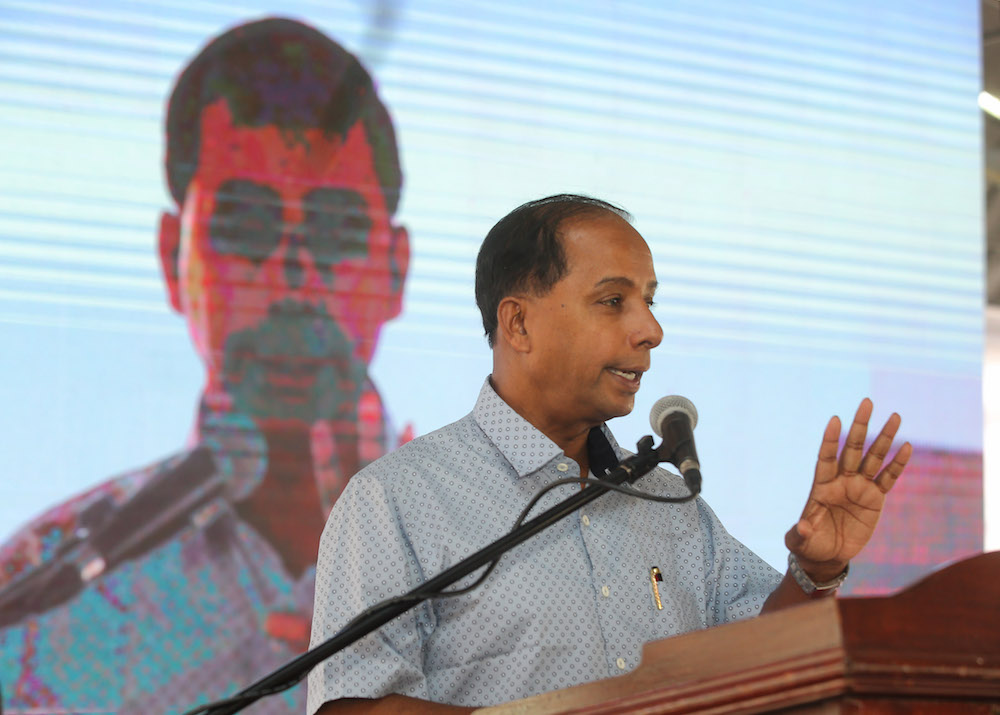IPOH, July 28 — Malaysia’s human resources minister is hopeful Nepal will reconsider a complete prohibition against its citizens seeking employment here over visa processing issues.
M. Kulasegaran said such a move would directly harm sectors such as plantation and security services that are heavily reliant on Nepali manpower to operate.
“It is regretful to hear that Nepal has suspended its workers from coming into Malaysia. It will have a big impact on all the industries,” he told reporters after closing the Ministry’s Occupational Safety and Health week at Malay-Shino Chemical Industries here.
The Ipoh Barat MP acknowledged Nepal’s unhappiness over the screening process applied to the country’s workers seeking employment here, which Nepali media previously alleged was corrupt and extortionate.
The Nepali Times published an article titled “Kleptocrats of Kathmandu and Kuala Lumpur” on July 20 in which it said it had evidence of high-level collusion between certain interested parties in Malaysia and Nepal to allegedly “fleece” the latter country’s workers.
“The fee for processing visas for Nepal workers is only US$20 (RM80), but we were made to understand that thousands of ringgit were spent for other processes such as medical screening, where some other private companies are involved,” Kulasegaran said.
“All these were approved by the former government. We are reviewing this matter and finding ways to overcome it.”
The Star reported today that Nepal took the drastic move over unhappiness with “restrictive” immigration requirements its workers must face before they can be gainfully employed in Malaysia.
The Nepali Times article had chronicled such charges, which it said directly inflated the original registration fee of Rs700 (RM26) to Rs4,500 (RM167) in 2015 when the new biometric screening requirement was implemented here.
It also alleged that prospective workers also needed to pay Rs2,800 to a firm in Nepal to handle the documentation and a Malaysian firm Rs3,200 fee for document scanning and fingerprinting as well as another Rs3,500 to simply make the data available online.
Nepal Embassy labour attaché Sanmaya Ramtel described the arrangement as a monopoly by a Malaysian firm.
Kulasegaran added that his ministry is already preparing a new policy on how to handle the intake of foreign workers from source countries such as Nepal, Bangladesh, Indonesia and Cambodia.
He revealed that he met Nepal’s High Commissioner in the past two weeks and had been on the verge of signing a new agreement.
“I hope to raise this issue in the coming Cabinet meeting to immediately resolve this matter,” he said.
“I also hope, in the meantime, the Nepal government will reconsider their decision in barring their workers to our country. We will try to find some other mechanism to allow the workers to come.”
The minister said an inevitable labour shortage would arise here if Nepal is unwilling to relax the moratorium.
It is learnt that there are currently more than 500,000 Nepalese workers in Malaysia.
The minister added that he is planning a comprehensive review of existing screening procedures after saying he did not see any reason for these to be performed by a private firm.
The firm accused, Bestinet Sdn Bhd, issued a statement on July 23 to rebut the claims, explaining among other things that the 37 accredited medical centres in Nepal were chosen based on their capabilities, infrastructure and ability to integrate with Malaysian authorities’ systems.
The company also insisted that it only collects RM100 for the bio-medical system approved by the Malaysian government, and that other charges are collected by other service providers.
The Nepali new outlet had accused Bestinet of colluding with other agencies and firms to impose various additional fees, which the Malaysian firm denied.
It also alleged that the firm was closely linked to former home minister Datuk Seri Ahmad Zahid Hamidi, which both have also denied.



















